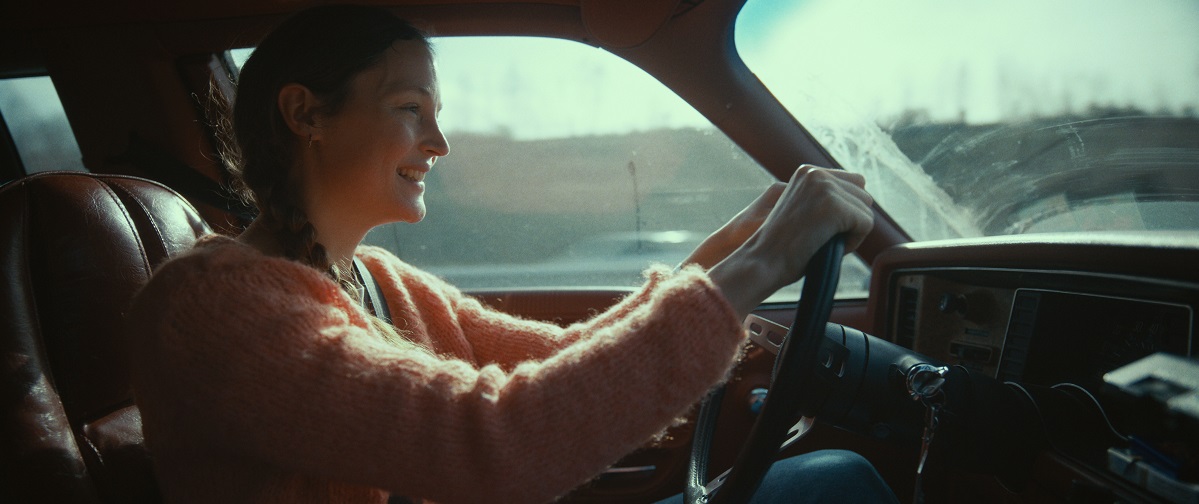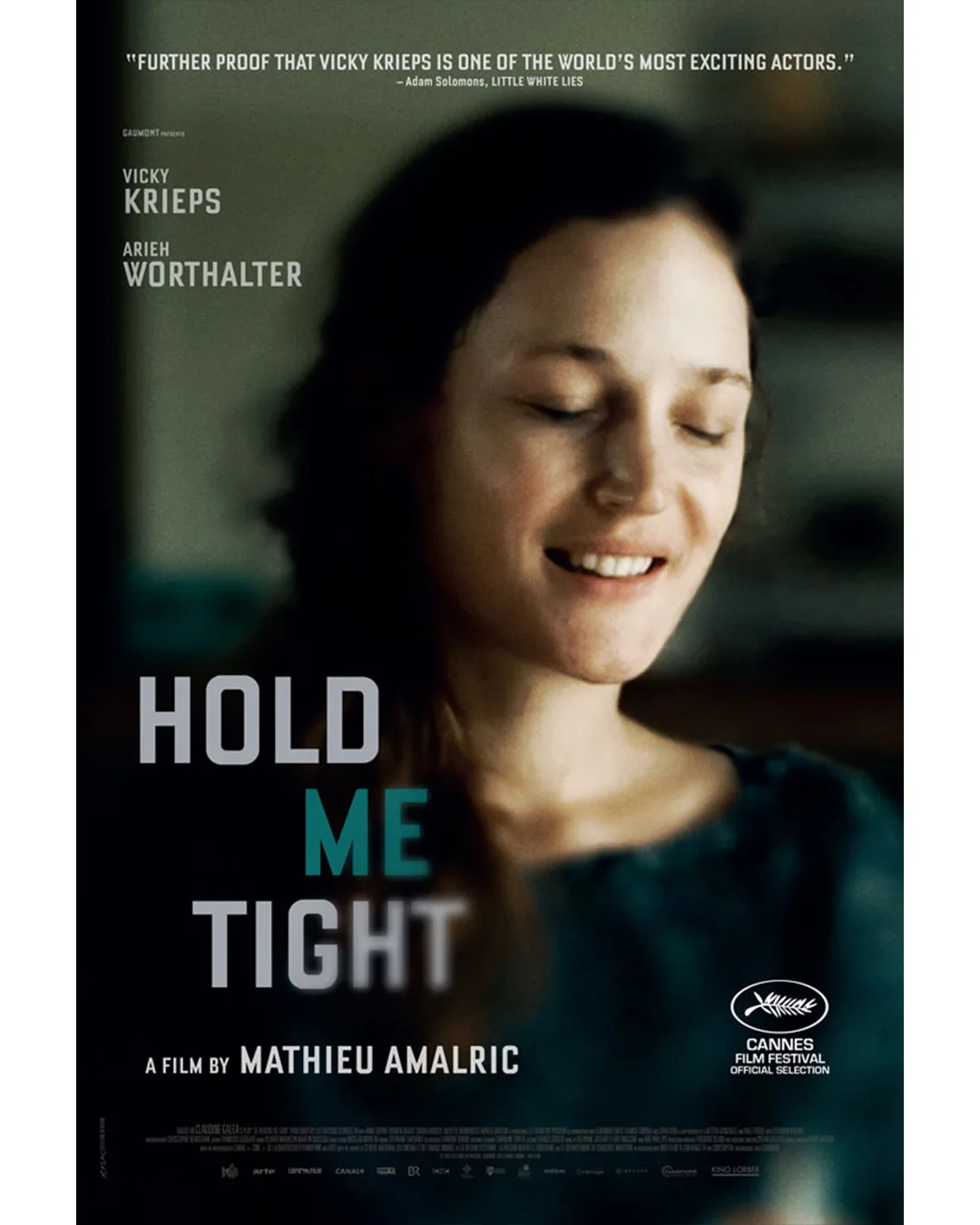A woman wakes up early, straightens up around the house, grabs a few items, and leaves her husband and two children sleeping. She drives away from her life, and her family’s panic starts to set in as they realize that mom isn’t coming home. There’s an early reference to “two months” that will have viewers thinking perhaps she’s received a mortal diagnosis or has been betrayed by a husband she just can’t live with anymore. We’re set up to ask why. What could possibly force a woman to leave her family forever? Well, what if that’s not exactly what’s happening?
Director Mathieu Amalric (a well-known actor from “Quantum of Solace,” “The Diving Bell and the Butterfly,” and many more) plays with perception in his excellent drama “Hold Me Tight,” making it difficult to review without spoiling the major revelation that comes about a third of the way through, but I’ll do my best. Suffice to say, Amalric uses the power of film in his adaptation of Claudine Galea’s play to do things that wouldn’t be possible in any other form. His drama moves through time, space, and even imagination in a manner that starts to become clearer but also resists traditional interpretation. We have been trained to look for clues and “solve” movies, but “Hold Me Tight” truly opens up when you start admiring it emotionally instead of logically. It’s a powerful piece of work with poetic direction and incredible work from Krieps, an actress who increasingly feels like she’s never going to miss.
As Clarisse seems to start a new life on the coast, “Hold Me Tight” cuts back to her family, including her husband Marc (Arieh Worthalter) and children Lucie (Juliette Benveniste/Anne-Sophie Bowen-Chatet) and Paul (Aurele Grzesik/Sacha Ardilly). Lucie plays the piano and Paul plays in the yard, adjusting to life without their mother. Or are they? Again, it’s difficult to explain what’s happening in “Hold Me Tight,” but you should know that it’s not a traditional melodrama about a destroyed family. There’s a lyricism to the scenes set back at home, snapshots of family life that don’t exist for Clarisse anymore, and just the sense of disconnect between her and the family builds a palpable emotional energy before the twist of the film delivers its gut punch.
From the beginning, something isn’t quite right with Clarisse. She snaps at a stranger with his son for mistreating him; she grabs ice from a fish market and covers her face with it. It starts to become clear that “Hold Me Tight” is toying with, well, everything. It jumps in time and even reality, becoming something increasingly lyrical even as it ostensibly answers questions about “what’s really happening.” It’s a daring, complex journey for any actress, and Krieps is fearlessly able to roll with it, collaborating with Amalric to be organic and grounded just enough to keep the film from spinning off into the poetic ether. It’s hard to anchor a film with so much emotional and practical diversions in order to keep the character from being like a pawn to the filmmaking, but Krieps never falters.
It’s also a reminder that Amalric just has an incredible eye as a director. The most subtly framed compositions in this film can somehow achieve remarkable levels of emotion. He has such a carefully calibrated sense of what this movie needs—other directors would have relied on over-cooked montages. And he works perfectly with cinematographer Christophe Beaucarne and editor François Gédigier (“Dancer in the Dark”) to find this film’s rhythm. Because its structure is so atypical to the modern family melodrama, it requires a great deal of craftsmanship to literally just put the broken pieces of Clarisse’s life into cinematic shape. And they recognize that not every piece needs to fit, allowing the end result to be unpredictably moving in its own way.
“Hold Me Tight” is a movie that sneaks up on you, and by the time it clarifies exactly what happened to Clarisse in its final scenes, it feels like you’ve already experienced the emotional fallout of that event. Amalric understands that it’s not the tragedies we face that define us as much as the days that follow—how we cope with grief or manage new realities—and he’s turned that understanding into one of the best films of the year.
Available in select theaters starting September 9th.




















